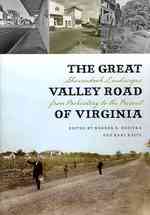Full Description
Music's role in animating democracy--whether through protests and demonstrations, as a vehicle for political identity, or as a means of overcoming social divides--is well understood. Yet musicians have also been drawn to the potential of embodying democracy itself through musical processes and relationships. In this book, author Robert Adlington uses modern democratic theory to explore what he terms the 'musical modelling of democracy' as manifested in modern and experimental music of the global North.
Throughout the book, Adlington demonstrates how composers and musicians have taken strikingly different approaches to this kind of musical modelling. For some, democratic principles inform the textural relationships inscribed into musical scores, as in the case of Elliott Carter's 'polyvocal' compositions. Pioneers of musical indeterminacy sought to democratise the relationship between composer and performers by leaving open key decisions about the realisation of a work. Musicians have involved audiences in active participation to liberate them from the passivity of spectatorship. Free improvisation groups have experimented with new kinds of egalitarian relationships between performers to reject old hierarchies. In examining these different approaches, Adlington illuminates the achievements and ambiguities of musical models of democracy.
As a result, this book not only offers an important new perspective on modern musicians' engagement with a central political idea of the past century, but it also encourages a deeper and more critical engagement with the idea of democracy within present-day musical life.
Contents
Acknowledgements
List of Examples and Figures
1. Deciding How to Decide: The Choices for Democratic Music-making
2. Curating Difference: Elliott Carter and Modernist Pluralism
3. Admitting Interests: On the Openness of Musical Indeterminacy
4. Empowering Others: Audience Participation as 'Democracy in Action'
5. Practising Egalitarianism: Free Improvisation and the Limits to Inclusive Music-making
6. Ungrounded: Musical Models of Democracy in the Age of Epistemic Chaos
Bibliography
Index








